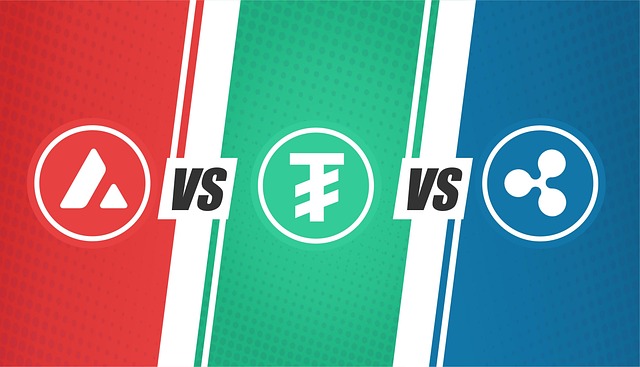Group and individual health insurance plans differ significantly in their structure, benefits, and customization options. Group plans, often employer-sponsored, offer lower premiums through risk pooling but provide standardized coverage tailored to a broad population. Individual policies, purchased directly from insurers, offer unparalleled flexibility, allowing personalized coverage based on unique health needs, ages, and conditions at potentially higher costs. Choosing between these options depends on cost considerations, desired level of control, network availability, and specific health requirements. Personalized health insurance is revolutionizing the industry by providing tailored solutions that cater to diverse healthcare needs, improving outcomes and reducing costs for both employers and individuals.
Personalized Health Insurance Solutions offers a transformative approach to healthcare coverage, catering to diverse needs beyond one-size-fits-all plans. This article explores the evolving landscape of health insurance, delving into the intricacies of both group and individual policies. We dissect benefits, costs, and customization options, highlighting how personalized solutions enhance accessibility and affordability. From employer-sponsored plans to navigating the market, we provide insights for informed choices between group vs. individual health insurance, ultimately empowering individuals to secure tailored coverage that aligns with their unique healthcare journeys.
Understanding Group Health Insurance: Benefits and Coverage

Group health insurance stands out from individual plans by offering a wide range of benefits and tailored coverage options. Unlike individual policies that cater to personal healthcare needs, group insurance is designed for organizations, employers, or communities, aiming to provide comprehensive protection to a collective. This model allows for economies of scale, often resulting in lower premiums for members.
One of the key advantages is the expanded coverage, which can include access to a larger network of healthcare providers and specialized services. Group plans also tend to offer more flexible benefits, allowing participants to customize their coverage based on specific needs, age, and health conditions. This approach ensures that each member receives personalized insurance tailored to their unique circumstances, ultimately enhancing overall well-being within the group.
Individual Health Insurance: Customization and Personalized Plans

When considering health insurance, individuals often find themselves in a dilemma between choosing group or individual plans. While group health insurance has long been the standard for employers and employees, individual policies offer a level of customization that can be appealing to those outside of traditional employment structures.
Individual health insurance allows people to tailor their coverage precisely to their needs and preferences. This flexibility means they can choose specific benefits, deductibles, and coverage limits that align with their personal health profile and budget. In contrast, group plans tend to be more standardized, offering a one-size-fits-all approach that may not cater to the unique requirements of every individual. By opting for an individual policy, people gain control over their insurance, ensuring they have the right balance of protection and affordability.
Group vs. Individual: Cost Analysis and Savings Strategies

When considering health insurance, individuals often ponder the merits of group plans versus individual policies. In terms of cost analysis, group health insurance typically presents a more economical option for several reasons. Often, employers facilitate these plans, and the collective pool of enrollees allows insurers to spread risks and offer lower premiums. This is particularly advantageous for young, healthy individuals looking to save money, as they can benefit from the reduced rates without incurring additional costs associated with individual policies.
However, individual health insurance offers a more tailored approach, catering to specific health needs and circumstances. While the premiums might be higher, this option provides greater flexibility in terms of coverage customization. Individuals have the freedom to choose plans that align precisely with their requirements, ensuring they receive comprehensive protection without paying for unnecessary components often found in group policies.
Employer-Sponsored Plans: Advantages for Employees and Businesses

Employer-sponsored plans offer a significant advantage in the world of health insurance, particularly when compared to individual policies. One of the key benefits is the potential for lower costs and increased coverage for employees. When an employer groups their employees together, they can negotiate better rates with insurance providers due to the larger risk pool. This often results in more affordable premiums for each employee, making essential healthcare services more accessible.
Additionally, these group plans typically provide a comprehensive range of health benefits tailored to meet the needs of the employer’s workforce. This can include various coverage options, such as dental, vision, and prescription drugs, which might not be readily available or as extensive in individual policies. Such arrangements foster a healthier and happier workforce, leading to improved productivity and retention rates for businesses.
Navigating the Market: Finding the Right Health Insurance Provider

Navigating the market for personalized health insurance solutions can be a daunting task, especially with the vast array of options available. Individuals and groups alike must carefully consider their unique needs and preferences to find the right provider. One key distinction lies between group and individual health insurance plans. Group plans are typically offered through employers, catering to a pool of people often resulting in lower premiums due to collective bargaining power. On the other hand, individual health insurance is purchased directly from insurers and may be more suited for those not covered by employer-sponsored plans or self-employed individuals.
When comparing providers, it’s crucial to evaluate factors such as coverage options, network of healthcare providers, cost structures, and customer service. Understanding the benefits and limitations of both group and individual health insurance is essential in making an informed decision. This will ensure that you secure a plan that provides adequate protection while aligning with your financial capabilities and personal or professional circumstances.
Personalized Coverage Options: Tailoring to Unique Healthcare Needs

Personalized coverage options have transformed healthcare insurance, allowing for a shift from one-size-fits-all plans to tailored solutions that address unique healthcare needs. Unlike group health insurance, which often provides standardized benefits for a broader population within an organization, individual policies offer flexibility and customization. This means policyholders can select specific coverage areas relevant to their personal health profiles, lifestyle choices, and financial capacities.
For instance, a young, healthy individual might opt for a plan with lower premiums that focuses on preventive care, while someone with a pre-existing condition could choose a comprehensive policy with specialized coverage for their specific medical needs. This level of customization ensures individuals receive insurance plans that align with their unique healthcare journeys, promoting better health outcomes and financial security.
Case Studies: Successful Implementation of Personalized Solutions

Personalized health insurance solutions have proven to be a game-changer in an increasingly complex healthcare landscape, especially when comparing group versus individual health insurance plans. Case studies highlight successful implementations where tailored policies have significantly enhanced both patient outcomes and overall cost efficiency. For instance, a mid-sized tech company adopted a personalized approach, offering employees flexible coverage options based on their unique needs and risk profiles. This strategy led to improved employee satisfaction as well as reduced claims costs for the employer.
Similarly, a large non-profit organization implemented a group health insurance plan designed around its diverse workforce’s specific requirements. By factoring in age, lifestyle, and pre-existing conditions, they created a comprehensive yet affordable package. The result was better engagement among staff, fewer instances of underinsurance, and improved access to preventative care, ultimately contributing to a healthier workplace culture. These real-world applications demonstrate the potential for personalized health insurance to foster better public health outcomes while addressing the challenges posed by traditional group versus individual coverage models.
The Future of Health Insurance: Trends Shaping Individual and Group Plans

The future of health insurance is evolving, with a growing trend towards personalized and tailored coverage options. This shift is particularly notable when comparing group vs individual health insurance plans. As technology advances, insurers are leveraging data analytics to create more customized policies that cater to specific health needs and lifestyles. For individuals, this means access to plans designed around personal health goals, risk factors, and even genetic predispositions.
Group health insurance, traditionally the dominant model for employers and their employees, is also undergoing transformation. The line between traditional group coverage and personalized individual plans is becoming increasingly blurred as insurers experiment with new models. These innovations include flexible plan options, tiered pricing based on lifestyle choices, and dynamic benefits that adjust as an individual’s health improves or changes over time. This evolution in group vs individual health insurance reflects a broader industry trend towards more adaptive, consumer-centric solutions.
Making Informed Choices: Comparisons and Recommendations

When considering personalized health insurance solutions, understanding the distinction between group and individual health insurance plans is paramount. Group health insurance, often offered through employers, provides coverage for a network of individuals tied by a common employer or association. This model offers benefits like lower premiums due to pooled risks and expanded access to healthcare services. However, it may lack customization, with limited control over specific coverage options.
In contrast, individual health insurance allows personal selection of plans tailored to unique needs and preferences. While premiums might be higher due to the absence of a risk pool, individuals gain greater flexibility in choosing benefits, deductibles, and coverage limits. Comparisons between these options should consider factors like cost, network availability, and personal health requirements. Recommendations often steer towards individual insurance for those seeking more adaptability and control over their healthcare coverage.
